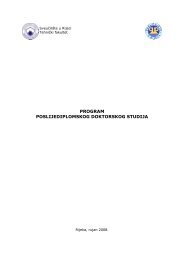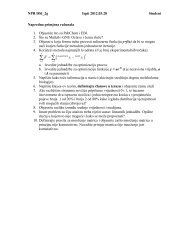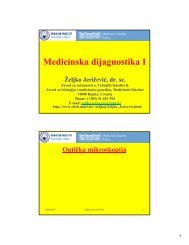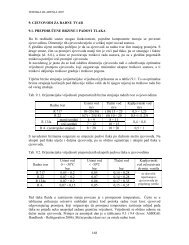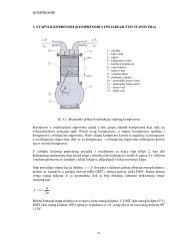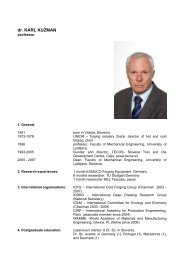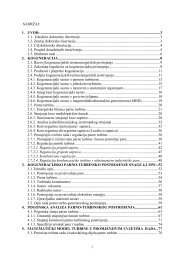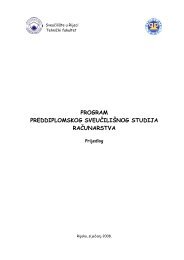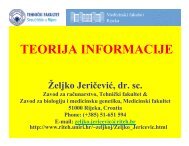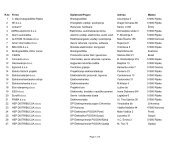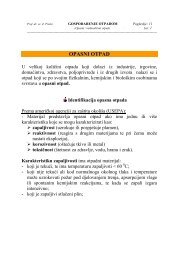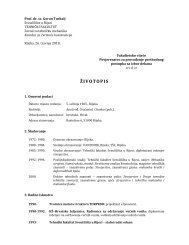universityâenterprise cooperation
universityâenterprise cooperation
universityâenterprise cooperation
You also want an ePaper? Increase the reach of your titles
YUMPU automatically turns print PDFs into web optimized ePapers that Google loves.
establishes and administers contracts for courses provided by<br />
enterprise representatives. TNA and skills deficit analyses conduct<br />
every six months through interviews and questionnaires. Joint<br />
research projects are often realized through partnerships between<br />
large companies (such as EDF, Alstom, Schneider Electric, etc.) and<br />
research laboratories and establishments (such as CEA, INPG, etc.).<br />
These partnerships can be organized as Groups of Economic Interest<br />
(GIE) or poles of competitivity (localized in and supported by the<br />
region). Technology park TEMIS in Besancon represents the leading<br />
institutions of this type in the field of micro technologies. University<br />
(ENSMM, faculty of micromechanics), research laboratories (public and<br />
private) and companies are present in this scientific park. Courses on<br />
promotion of entrepreneurship are usually organized at the Faculty<br />
of Economics, and students from other faculties can choose some of<br />
these courses to expand their knowledge. Students often do their<br />
internships in other EU countries. Almost all university professors<br />
have large industrial experience and it is very often that professors<br />
teach industrial staff. University Paris-Sud 11 has been already<br />
involved in European networks, such as the European technological<br />
platforms (ARTEMIS, eMobility, etc.) and the EUREKA clusters (ITEA1,<br />
MEDEA+2, etc.) and are represented in European Commission R&D<br />
programs (Framework Programmes FP6 and FP7).<br />
E) University Paris-Sud 11 and French regions work closely<br />
together in competitivity poles. The University is involved in<br />
SYSTEM@TIC PARIS-REGION Competitiveness cluster. In this<br />
cluster the University has an opportunity to cooperate with SMEs,<br />
local, regional and national agencies and economic development<br />
bodies. The University is also actively involved in development<br />
of regional strategies for Paris Region. University Paris-Sud 11 is<br />
a partnering institution in the following EU regional development<br />
projects: MINERVE for nanotechnologies, POLA for lasers, PCRI for<br />
computer science research, The Biostructure Centre in the Soleil<br />
synchrotron environment and Pharmatechnopole for medicines.<br />
www.temis.org/home.html<br />
www.systematic-paris-region.org/fr/<br />
77<br />
A) Technical University of Denmark - www.dtu.dk<br />
B) DTU sees the collaboration with businesses and other external<br />
parties as a very important task in connection with ensuring the transfer<br />
of technology and knowledge to society. DTU’s Office for Research<br />
and Innovation provides advice and guidance on research, innovation,<br />
education and industrial collaboration to students, employees, industrial<br />
collaboration partners and other interested parties.<br />
5.5<br />
www.dtu.dk/English/About_DTU/<br />
Organization/Supportfunctions/<br />
AFI.aspx<br />
C) DTU has several centers that support <strong>cooperation</strong>. Among others:<br />
• IPU offers public and private companies highly qualified<br />
www.ipu.dk<br />
Good practices in the area of university-enterprise <strong>cooperation</strong> 5



